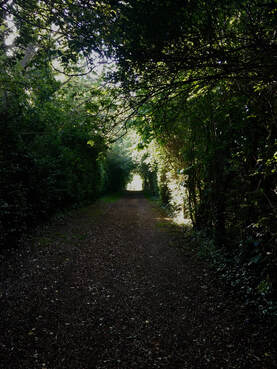|
Reflections from a home front: 12 Week seven of lockdown, and there is light at the end of the tunnel. It’s faint and, as is the way with dark tunnels, distance becomes hard to judge. But here in England the message is suddenly no longer ‘Stay at Home’. One assumes that, apart from its useful same-but-different vibe, the government has adopted the call to ‘Stay Alert’ rather than ‘Be Alert’ to avoid inviting the obvious response, ‘Because Britain needs Lerts’. [1] It’s been perceived as a messy message – though it’s quite hard to imagine any strapline capable of capturing a message appropriate to the moment. Getting out fast and locking the door behind was a relatively simple emergency procedure; it was clear what we had to do. What lies in front is vastly complicated and uncertain for so many reasons. The world will be different. It’s hard to imagine how different, or what that will feel like. But picking up where we left off is obviously not going to be an option. Back in March, Rowan Williams, appearing on Newsnight, was asked: ‘Is it more important to bounce back, or is it more important to be changed?’ His reply: ‘That’s a very interesting question because we’re almost too used to hearing people say, well things will never be the same again – after nine eleven and the financial crisis of 2008. But mysteriously, we didn’t seem to learn a great deal from either of those things. So naturally I hope it’s not just a question of bouncing back. I think the real question is, what does it really mean to live in a safe society – a society where vulnerable people are secure. … It’s genuinely a shared challenge. Do I understand that my wellbeing is completely bound up with the wellbeing of all my fellow human beings? It’s a big ask to get that imaginative question through, but there it is.’ It is a big ask. But, as I wrote a few posts back, the gift of this time is that it has invited us – pushed us, even – to notice the priorities we’ve been slowly nudged into, the programme we’ve inadvertently constructed, and what our human being has come to consist in. The world will be different. But we will be different. As with reverse culture shock, we may not completely appreciate how different until re-entry. I remember spending a week on a small boat, sailing round the coast of Britain in what turned out to be the coldest, wettest week of that particular summer. I am not a sailor, and so my role was pretty limited. Aside from observing the strict routines of life on board, it mainly involved huddling on the deck and trying to keep warm whilst watching the waves and the sky and the land dipping in and out of view on the horizon. There were a few magical moments: hearing the cries of the wildfowl while moored on a Suffolk estuary at dusk, a visiting porpoise, the thrill of being on the tiller and holding course through an extremely rough patch. But I spent a lot of time wondering how else I might have spent a week’s precious holiday. It was only on my return that the full effect was revealed. There was, of course, the appreciation of simple things (space to wash and cook, enough water, warmth) but more wondrously my soul had been stilled and I experienced a rare lucidity of thought and vision. How I wanted to hold on to it! Despite my best efforts the sensation ebbed away. Transformation of habit and of being takes longer than a week. But there was a legacy of thought and perspective that has influenced subsequent choices. We are not the people we were when we locked the door, although we may not realise it immediately. Transformation doesn’t always happen straight away. It happens after you thought it should. It happens behind the scenes. It happens when you’re looking the other way. Like the ugly duckling, you might not appreciate what’s really happened until you return to the world of the river bank. As the world we knew fell away, Wordsworth’s famous line, ‘The world is too much with us’ kept springing to my mind … The world is too much with us; late and soon, … and formed a springboard for today’s poem, another sonnet. Again, if you'd like to hear it, click the play button. Our world was too much with us, that we’d known, Imposed and stolen, straining at the seams. One unseen strain threw every tower down. In deep retreat, we locked away our dreams. Straight into the cleared and quiet places Determined shoots and heaven-bent tendrils crept. Into every breach and every province The feet of peaceful armies quickly stepped. Now swithering on the threshold, as in prayer, Observing how the path has overgrown, We find white feathers striking through grey. We flex our wings and modulate our song. How not to trample, but to sanctify The tender surface. How to learn to fly? [1] When I asked the Wandering Albatross to do his usual and much appreciated proof-read just now, he pointed out a piece in today’s press mentioning that Twitter is now awash with this particular joke. I honestly hadn't seen it. Dash.
0 Comments
Your comment will be posted after it is approved.
Leave a Reply. |
AuthorStill me … Archives
September 2020
Categories
All
|

